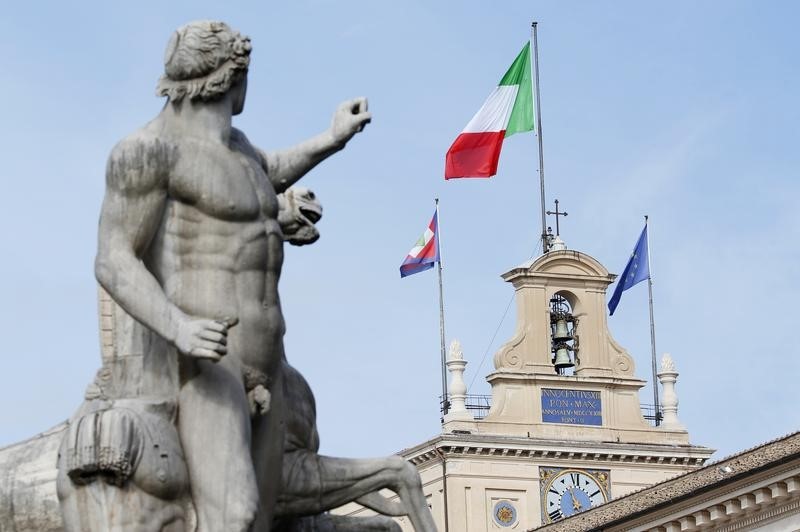(Bloomberg Opinion) -- Italy’s populist coalition government has promised to use tough tactics to force its EU partners to swallow its enormous spending plans — which one estimate put as high as 120 billion euros ($136 billion).
Linking the tragic deaths of at least 39 people in a Genoa bridge collapse to Brussels budget rules is certainly an unfortunate example of that. As well as being misleading, such blame-apportioning threatens to put off the very investors that Italy needs to rebuild its crumbling infrastructure. And this at a time when foreign capital was starting to look at the country more favorably.
According to Matteo Salvini, head of the right-wing League and deputy prime minister, “external” constraints are to blame for preventing Italy from spending on safe roads and schools. “There can be no trade-off between fiscal rules and the safety of Italians,” he said. Transport Minister Danilo Toninelli chimed in with a pledge to reverse maintenance shortfalls in the name of safety.
Salvini’s comments ignore the fact that Brussels doesn’t allocate member states’ infrastructure spending — and that the collapsed bridge is run by a private-sector Italian firm, the Benetton-backed Atlantia SpA. You might as well blame the privatizations of decades ago, or Italy’s huge debt burden, when looking for root causes.
If anything, the EU has helped Italy in this area, using its own budget to roll out billions in financing for new infrastructure projects. The country has received about 8.3 billion euros in approved EU-backed funding since 2015.
And while the populists may rail against those sticklers for budgetary rules in Brussels (and Berlin), the EU has in fact been pretty consistent in pushing for growth-friendly infrastructure upgrades over the past five years. It’s also keen to see a reduction in economic disparities between the north and south of the country and a crackdown on corruption.
But rather than try to work with that, Salvini would prefer to mask endemic domestic problems with cheap shots at outside forces.
It’s not as if the coalition has a flawless approach to infrastructure. Salvini’s coalition partners in the Five Star Movement have long campaigned against grand building projects, which in its view are bloated by corruption and a broken procurement process. Toninelli pointed the finger at the Atlantia unit running the bridge. So is the problem really not enough money, or more the way it’s spent?
Indeed, there are many questions to answer about the tragedy before making a link to overall spending or EU budgetary caution. Were safety checks undertaken regularly, and appropriately dealt with? Did the government adequately hold contractors to account? Local press reports suggest politicians played down safety fears about this bridge in the past.
The danger of looking to blame outsiders is that they might decide to stay away. According to consultants at AT Kearney, Italy moved up three places in its foreign direct investment table last year to sit at number 10. Despite relatively weak growth, it found foreign capital was warming to Rome’s industrial and innovation policies.
Lashing out might make political sense to the euroskeptic Salvini, but it won’t just be Brussels bureaucrats who hear his message.
